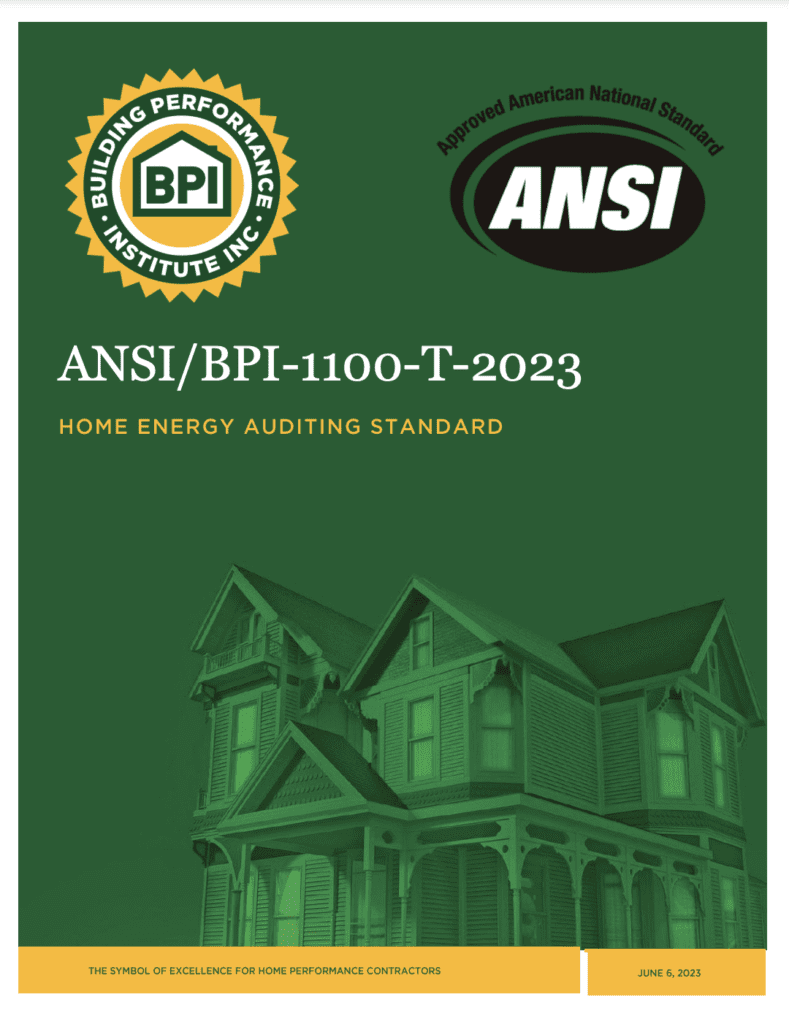Resource Library
BPI: Home Energy Auditing Standard
Overview
ANSI/BPI-1100-T-2023 Home Energy Auditing Standard defines the minimum criteria for conducting a building science-based residential whole-building assessment.
Quick Links

ANSI/BPI-1100-T-2023 Home Energy Auditing Standard defines the minimum criteria for conducting a building science-based residential whole-building assessment. The assessment includes an audit that will address energy usage and limited aspects of building durability, occupant comfort, health, and safety. An audit report will provide a comprehensive list of prioritized recommendations to improve the energy efficiency of the home and to address related health and safety, comfort, and building durability issues as identified in the standard. The audit report will include a cost-benefit analysis.
ANSI/BPI-1100 defines the “what” of the home energy audit process, while its companion standard, ANSI/BPI-1200-S-2017 Basic Analysis of Buildings defines “how” to conduct a residential energy audit. ANSI/BPI-1200 is currently under revision with plans to release it for public comment later this year.
ANSI/BPI-1100 was updated by BPI’s Standards Technical Committee (STC) with development procedures in accordance with American National Standards Institute (ANSI). The STC is comprised of subject matter experts representing a wide variety of interest categories and geographical locations.
As a standards organization, BPI convenes the Standards Technical Committee, facilitates and records meetings, and hosts and maintains approved standards. BPI is deeply grateful to all the STC members who volunteered their time and expertise to this effort.
